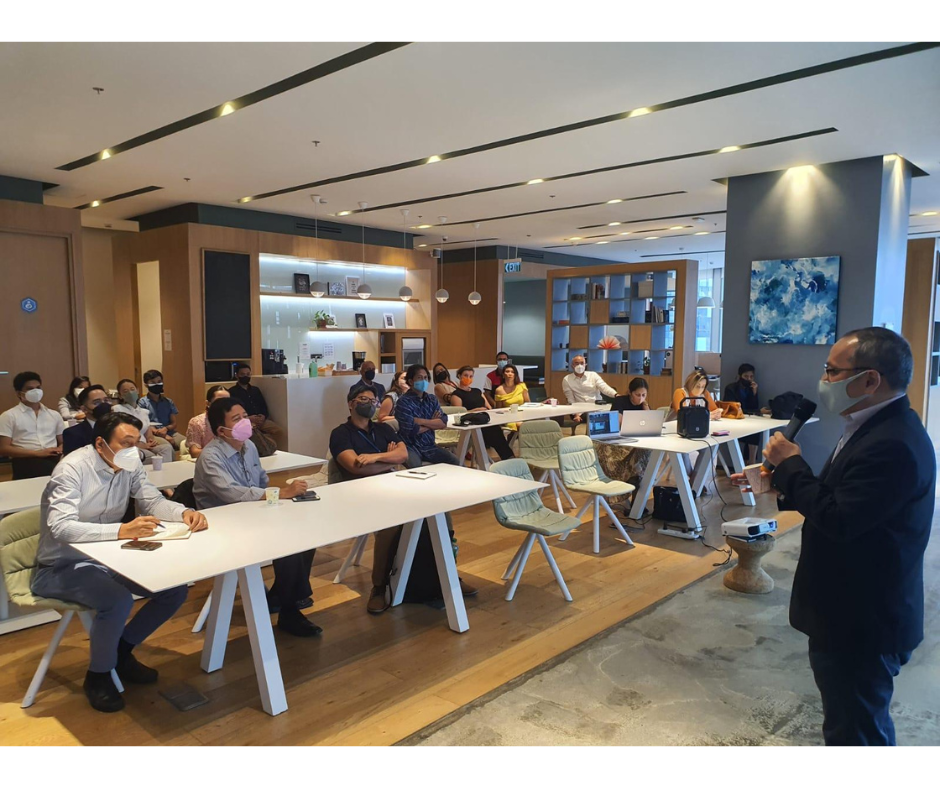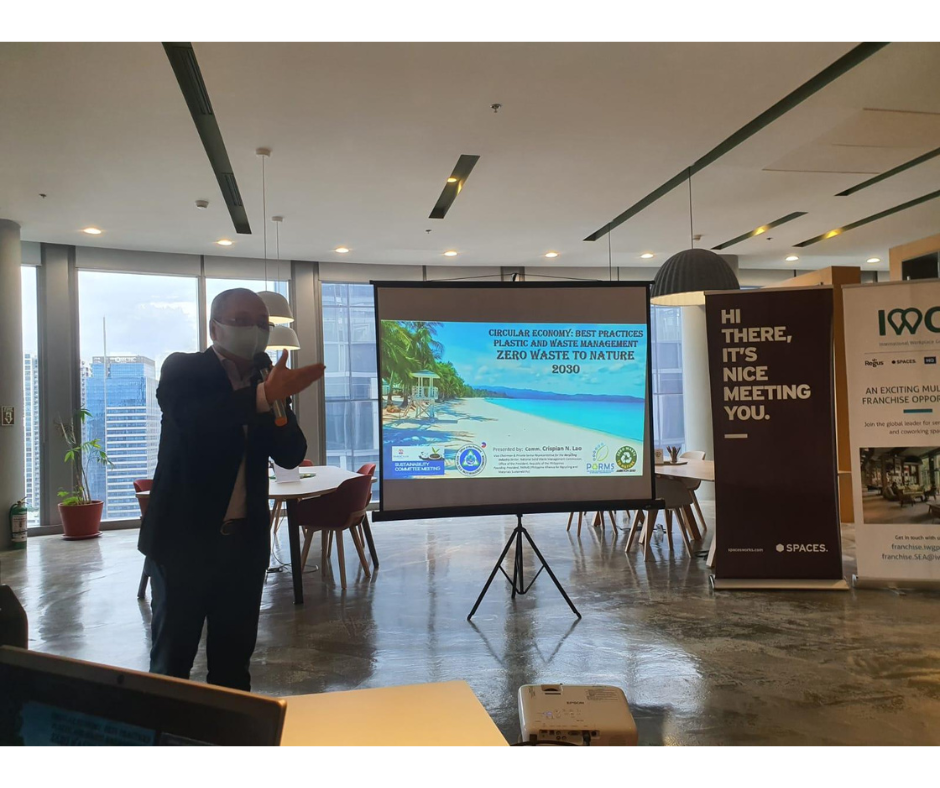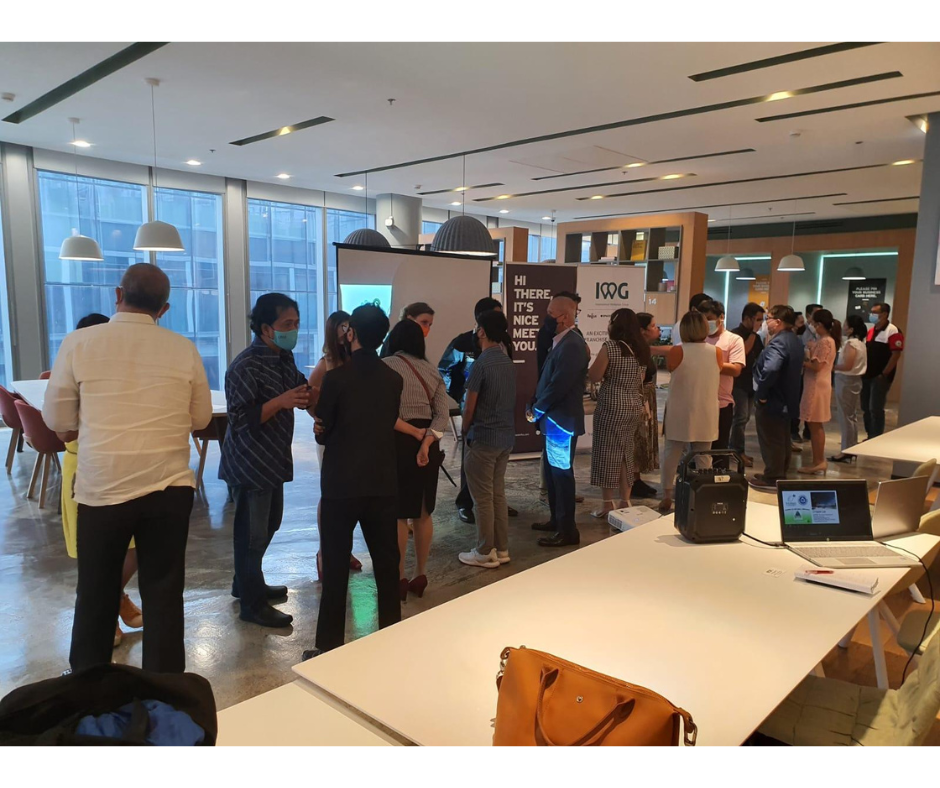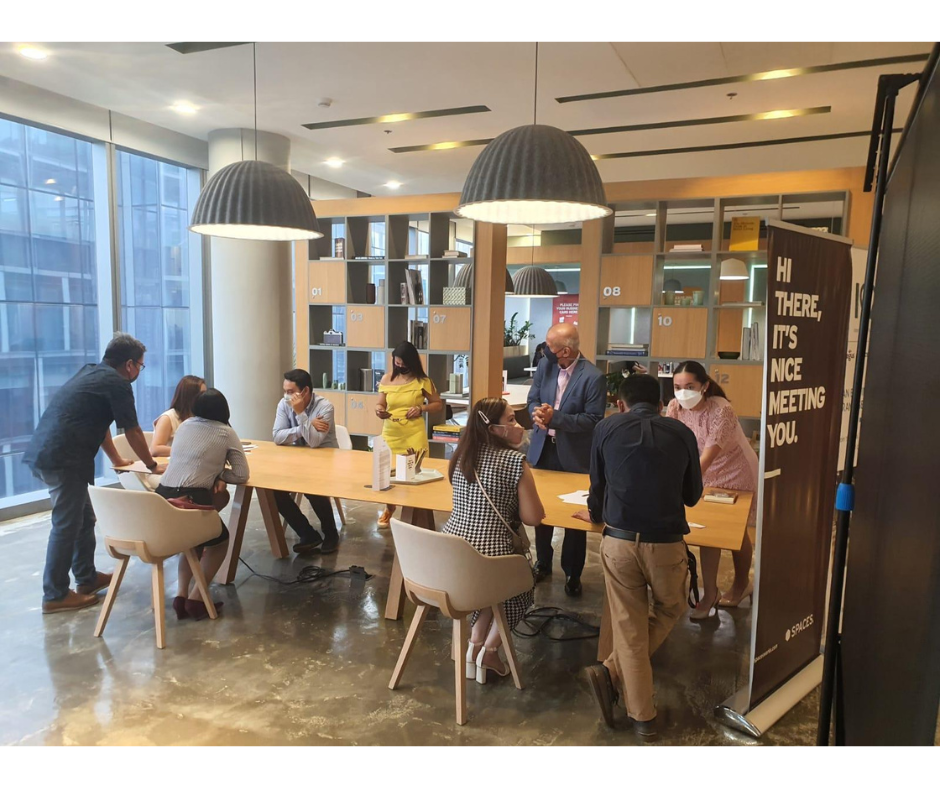"There are several circular models, but most importantly they should fit the context in the Philippines to be realistic and to have impact”, insights from the NordCham Sustainability Committee
The Nordic Chamber of Commerce Philippines hosted the 3rd Sustainability Committee meeting on July 20 on the topic of plastic waste management and circularity at Spaces in World Plaza, BGC.
Attendees included representatives from: Arla Foods, Artelia Philippines, Cathay Pacific, Crown World Mobility, Embassy of Denmark Manila, Philippine Transmarine Carriers, PMFTC Inc., Primer Group and SN Aboitiz Power.

The committee meeting focused on plastic waste management and circularity in the Philippines, with the keynote speaker, Commissioner Crispian Lao, Vice Chairman of the National Solid Waste Management Commission under the Office of the President, as the Private Sector Representative for the Recycling Industry Sector, and Founding President of the Philippine Alliance for Recycling and Material Sustainability (PARMS). Mr. Lao has extensive experience in the private sector on materials recycling and waste management, and shared with us the best practices and insights from the field. Meanwhile, PARMS is a multi-stakeholder organization that developed the "ZERO WASTE TO NATURE: AMBISYON 2030" roadmap for single use products and packaging applications. Mr. Lao’s specific insights from working with large global and local manufacturers and other stakeholders in the plastic value chain included:
- Principles for design should include end of life, but also take into account the infrastructure for waste management in the ‘end’ market e.g. in the Philippines.
- There are several circular models, but most importantly they should fit the context in the Philippines to actually be realistic and to have impact.
- An example of an issue in plastic waste management is that bioplastics need specific processing infrastructure that might not be available in the Philippines. Another example is that reusable plastics may strain water supply and lead to water shortage
- The recent bans on styrofoam and single-use plastics may have a negative impact, as this type of waste used to have a full industry and subsequent usage. Now, instead, disposable waste cannot be recycled and ends up in landfills.
- The problem with flexible plastic is that the recoverable value is low due to food contaminants, and therefore it is important to separate food waste from other plastics.
- It is possible to increase post-consumer recycling with drop-off locations.
- For more rural areas, the private sector should establish a recycling facility, while also influencing these areas to have input of plastic of high value, e.g. PE/PP and rigids, while also creating economies of scale for waste management through collaboration
- The proposed EPR bill incentivizes firms to reduce their plastic waste, and for industrial waste, companies can connect with recycling orgs and compliment what’s already being done.

After Mr. Lao’s presentation, participants were able to discuss their experiences regarding managing plastic waste, as well as share their solutions, some of which are highlighted below:
- Managing plastics input is crucial to manage output, and to make sure that waste is either disposed properly or recycled. Support or provide on the ground capacity building to communities regarding waste management, and nudge towards higher-value plastics such as PE/PP and rigid plastics. This is applicable to households, companies and communities.
- Offices can become paperless and rely on digital copies and signatures.
- Education of consumers and employees for proper disposal and proper usage of recycling bins. Bring your own containers to the office for plastics, and use nudging to change mindsets for recycling. This can be on e.g. waste separation, that food waste must be separated from other types of waste.
- Designing products for the end of life will increase a sense of responsibility. Designing products that take into account the full environmental impact throughout the life cycle of the product from production to recycling, e.g. energy consumption, water consumption.
- When designing products and waste management systems, think about the 4Cs: collaboration, communities, creativities, conversion. Companies can engage in partnerships with organizations for upcycling of plastic.


The committee meeting is the 3rd meeting of the recently launched Sustainability Committee by NordCham. The NordCham Sustainability Committee aims for more collaboration across industries and to learn from each other and from experts. Going forward, the Sustainability Committee hosts 9 annual meetings of varying sustainability topics with resource speakers and sharing of best practices, opportunities for networking and building partnerships, as well as collaboration with government units.
The Committee is intended for business partners of NordCham, but guests are also accepted. Interested guests are welcome to contact Executive Director, Jesper Svenningsen at js@nordcham.com.ph.
NordCham Philippines looks forward to sustained collaboration and showcasing the sustainability initiatives of business partners, while contributing to positive change by forging stronger relations with the government.
